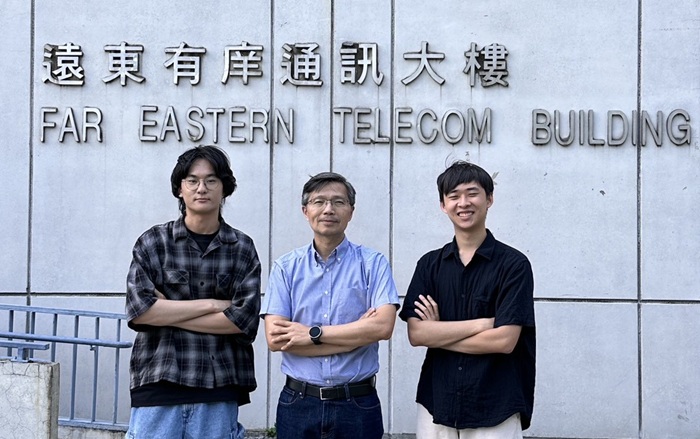The College of Electrical and Communication Engineering at Yuan Ze University once again showcased its strength on the international AI stage. Following last year’s championship in a Google global competition, this year a research team led by Distinguished Professor Tun-Yu Chen, Dean of the College of Electrical and Communication Engineering, together with faculty members Yong-Che Lu and Sheng-Kai Ku from the Department of Electrical Engineering, achieved outstanding results at the globally recognized machine learning challenge “NeurIPS – Open Polymer Prediction 2025,” winning a gold medal.
The competition, co-organized by the premier AI conference NeurIPS and Google’s Kaggle platform, focused on predicting key properties of polymer materials through machine learning to accelerate new material development and applications. A total of 2,240 teams worldwide took part, with the top 14 awarded gold medals. The Yuan Ze University team ranked 11th overall, securing its place among the gold medalists.
During the contest, the team designed a deep learning model centered on graph neural networks (GNN) and molecular feature engineering, combining Morgan molecular fingerprints with statistical features. By employing ensemble learning and cross-validation, they enhanced prediction accuracy and achieved balanced performance across five different material property evaluations.
Dean Tun-Yu Chen stated that this achievement demonstrated Yuan Ze University’s long-standing efforts in cross-disciplinary AI applications at the international forefront. He emphasized that the technology and experience gained from the competition would be integrated into course materials and industry-academia collaboration, continuing to cultivate AI professionals with cross-disciplinary expertise.
Yong-Che Lu from the Department of Electrical Engineering shared that although the team members were not experts in chemistry, they worked hard to quickly absorb cross-disciplinary knowledge and attempted to use deep learning models to understand and replicate the material world, which ultimately led to their success. Sheng-Kai Ku added that the greatest challenge was the lack of large-scale labeled data, which required them to identify patterns from limited clues.
The competition officially launched on Kaggle on June 16 and concluded on September 15. In addition to Kaggle, the organizers included renowned academic institutions such as the University of Notre Dame in the United States. The challenge required participants to predict properties such as glass transition temperature, fractional free volume, thermal conductivity, density, and radius of gyration from polymer chemical structures (SMILES), with rankings based on weighted mean absolute error.


 繁
繁